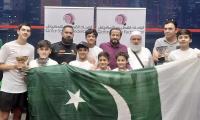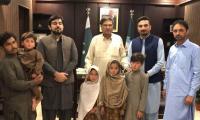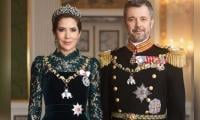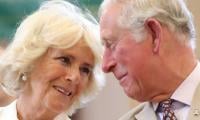A major reason for the ever-growing fame and readership of Jaun Elia is that no Urdu poet other than him was able to present in their verses various shades of modernist solitude and rebellious sentiments, including those related to loneliness, depression, bitterness, anger, apostasy and refusal, which were an altogether new experience for the human race in the 20th century and which have continued till the 21st century.
Poet and linguist Iftikhar Arif made these remarks on Monday as he virtually presided over from Islamabad an event at the Arts Council of Pakistan in connection with the 20th death anniversary of Jaun that falls today (Tuesday).
Arif echoed a popular impression that Jaun’s personality, due to his various eccentricities, still dominated discussions on him and what he had actually penned down was discussed less in comparison to how he behaved with people and at Mushairas.
He said that the recording of Jaun’s life events and his eccentric personality was important, but that should not overshadow his poetry. He added that after 50 years, Jaun’s sole recognition would be what he had left as a poet, not his demeanour in his public and private life.
Arif said Jaun started writing poetry when major poets such as Faiz, Rashid, Majeed Amjad, Ahmed Faraz and Muneer Niazi were writing. In the literary landscape of Karachi, major poets such as Aziz Hamid Madni, Razi Akhtar Shauq, Raees Farogh, Mehboob Khizan and Mehshar Badayuni were producing ghazal of high standard, he added.
However, when Jaun entered the realm of ghazal, he entirely changed the genre by choosing to write in the vernacular language, Arif said, adding that after Yagana, no other poet in Urdu had a complete personal voice (Lehja). To elucidate his point, the speaker said Jaun’s verses forced the readers to read them in the manner and style in which he himself read them.
He said Jaun was a God-gifted poet who had immense command over the language as he would skillfully use obsolete words in his verses and revive them. On the personal side, Arif said the late poet had a complex personality. He was loved and appreciated but he always nurtured the impression that the world did not give him what he truly deserved.
Commenting on some Jaun’s fans who used his name with Ghalib to imply that he was the second greatest after Ghalib, Arif said it was natural for a man’s friends to resort to some hyperbole in his favour, and mentioning Jaun with Ghalib and ignoring everyone else was just an exaggeration.
The event was moderated by journalist and poet Peerzada Salman. He and other speakers. who included Arts Council President Ahmad Shah, Vice President Munawwar Saeed, poet Ambreen Haseeb Amber, filmmaker Sohail Javed and Jaun’s relative and fan Abbas Naqvi, shared anecdotes of Jaun, discussed his poetic stature and recited his verses.
Salman said he encountered Jaun when his only collection of poetry in his lifetime, Shayad, was published in 1990s when the poet was 60 years old. The moderator said he used to be a student at the University of Karachi and there was a reign of terror in the city, which provoked some serious existential questions in him. He said when he started reading Shayad, he felt that someone had clearly stated all his difficult thoughts.
The ACP president said Jaun and his household had had a tremendous influence on him as he and his brothers, particularly Syed Taqi, inculcated in him interest in philosophy and literature. He recited some verses penned by Jaun to describe the law and order mayhem in Karachi during the 1980s and 1990s. The verses were:
“Hoo Ka Alam Hai Yahan Nalagaron Ke Hote/ Shehr Khamosh Hai Shoreedasaron Ke Hote/ Juz Saza Aur Ho Shayad Koi Maqsood Un Ka/ Ja Ke Zindan Mein Jo Rehte Hain Gharon Ke Hote” In a well-written piece that she had written on Jaun’s poetry, Ambreen described how it imbibed the extremities of a deformed inner self of a person who could not find any compatibility of his ideals and values with the materialistic world around him.
She said Jaun had converted his pessimism into insensitivity as depicted in this famous verse, “Kia Takalluf Karen Yeh Kehne Mein/ Jo Bhi Khush Hai Hum Us Se Jalte Hain”. “Mustaqil Bolta Hi Rehta Hoon/ Kitna Khamosh Hoon Mein Andar Se” was another verse quoted by Ambreen to show the tragic element in Jaun’s poetry.
The picture shows a pharmacy. — AFP/FileThe Karachi administration has launched a campaign to check the expiry dates...
In this still, Karachi Mayor Barrister Murtaza Wahab addresses an event on April 25, 2024. — Facebook/Barrister...
In this still, Sindh Inspector General of Police Ghulam Nabi Memon chairs a meeting at the Central Police Office on...
Representational image shows police tape. — AFP/FileAn elderly man who ran a general store was shot and killed in...
A handcuffed suspect stands behind the bars with a policeman standing outside the jail in this undated image. —...
In this still, Sindh Chief Minister Syed Murad Ali Shah meets federal energy minister Owais Ahmad Khan Laghari in...







